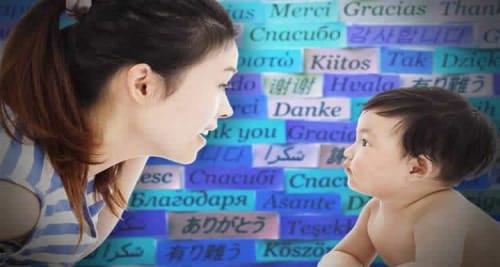Bilingual babies are smarter than monolingual babies, in some ways. Recent research studies looked at how bilingual babies switch back and forth between the two languages they’re learning, and what role that has in developing greater mental control in certain parts of the brain.
From the article, Switching Between Languages Pays Off for Bilingual Toddlers, on NeuroscienceNews.com:
“It’s estimated that half of the world’s population speaks two or more languages. But are there hidden benefits to being bilingual? Research from Concordia reveals a new perk visible in the problem-solving skills of toddlers.
The results of a study recently published by theJournal of Experimental Child Psychology show that bilingual children are better than monolinguals at a certain type of mental control, and that those children with more practice switching between languages have even greater skills.
Bilingual speakers can thank the sometimes-arduous practice of switching from one language to another for this skill. “This switching becomes more frequent as children grow older and as their vocabulary size increases,” says Diane Poulin-Dubois, a professor in Concordia’s Department of Psychology and the study’s senior author.
“Therefore, the superior performance on these conflict tasks appears to be due to bilinguals’ strengthened cognitive flexibility and selective attention abilities as they have increased experience in switching across languages in expressive vocabulary.”
Here’s a link to the rest of the article: Switching Between Languages Pays Off for Bilingual Toddlers
[layout show=”2″]
